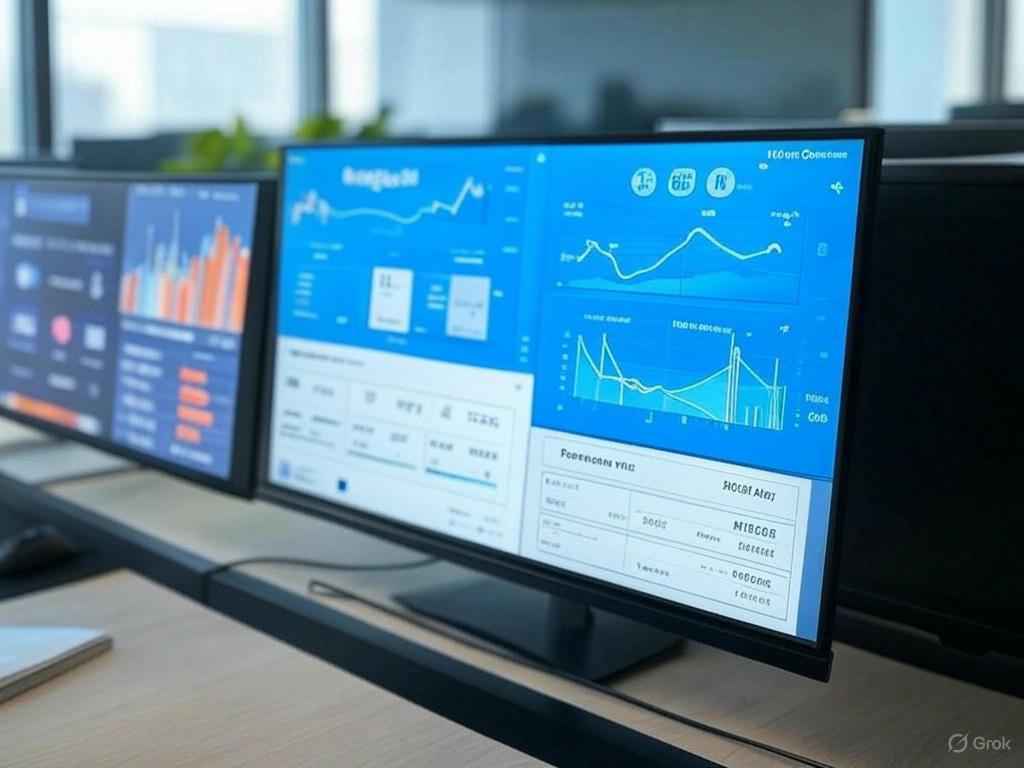
In today’s digital age, data is king. Leveraging analytics to inform your digital marketing strategy is essential for making data-driven decisions that drive business growth. Whether you're a small business or a large enterprise, using analytics effectively can optimize your marketing campaigns, improve your ROI in Digital Marketing, and boost customer engagement. In this article, we’ll explore the importance of analytics, the best tools available, and how you can use insights to enhance your digital marketing performance.
Analytics plays a central role in digital marketing strategy because it provides actionable insights that help businesses understand consumer behavior, track campaign performance, and identify growth opportunities. It’s crucial for:
By using Data Analytics in Marketing, businesses can continuously refine and improve their marketing efforts to meet customer needs and expectations more effectively.
When using analytics for digital marketing, it’s important to track specific metrics that align with your business goals. Some key performance indicators (KPIs) include:
Tools like Google Analytics, HubSpot, and A/B Testing in Marketing can help track these metrics effectively and provide insights into user behavior.
Content is a core part of digital marketing, and using analytics to guide your content strategy can greatly enhance your reach and engagement. Here’s how you can use data to inform your content:
By leveraging Content Marketing Strategy, analytics helps you improve your content to drive traffic and increase conversions.
Social media is a vital part of any digital marketing strategy, and analytics can provide insights into how well your posts are performing. Tools like Social Media Marketing platforms (Facebook Insights, Twitter Analytics, LinkedIn Analytics, etc.) provide valuable metrics, such as:
By analyzing these metrics, you can identify which types of social content (videos, infographics, etc.) work best and adjust your Social Media Marketing strategies accordingly.
Paid advertising campaigns (Google Ads, Facebook Ads, etc.) are a significant part of digital marketing, and analytics is crucial for optimizing these campaigns:
Optimizing your digital ads through analytics ensures that you get the most value out of your advertising spend and improve your overall ROI in Digital Marketing.
One of the biggest challenges for digital marketers is measuring the return on investment (ROI). Using analytics tools, you can track the effectiveness of your marketing campaigns by calculating your ROI.
Set Clear Goals: Define your objectives, whether it's increasing website traffic, generating leads, or making sales. Your goals will guide your ROI analysis.
Track Expenses: Monitor the costs associated with your campaigns, including ad spend, software costs, and personnel costs.
Calculate ROI: Once you have data on revenue generated from a campaign and your total spend, you can calculate ROI using the formula:
ROI={(Revenue−Cost)×100}/Cost
This data helps you determine which channels or strategies are delivering the best returns and should be prioritized in your Digital Marketing Strategy.
Email marketing remains one of the most effective forms of digital marketing. Using analytics, you can track key email marketing metrics such as:
By using analytics to assess your email marketing efforts, you can optimize subject lines, timing, and content to increase engagement and conversions.
Incorporating analytics into your digital marketing strategy is essential for making informed decisions that optimize performance and improve ROI. From tracking website traffic to refining content and advertising campaigns, data-driven insights help you create targeted and effective marketing strategies. Whether you’re working on Small Business Marketing or large-scale campaigns, using analytics is a surefire way to enhance your digital marketing efforts and achieve better results.
Why should I use analytics in my digital marketing strategy?
Analytics help you track performance, understand your audience, and make data-driven decisions that optimize your marketing efforts.
What metrics should I track in digital marketing analytics?
Key metrics include website traffic, conversion rate, bounce rate, customer lifetime value (CLV), and engagement metrics.
How can I use analytics to improve my content strategy?
By tracking high-performing content, optimizing for SEO, and analyzing user behavior, you can create more engaging content that drives traffic.
What is the importance of A/B testing in analytics?
A/B testing helps determine which versions of your marketing assets (emails, ads, landing pages) perform better, leading to more optimized campaigns.
How can I measure ROI in digital marketing?
By tracking campaign expenses and revenue generated, you can calculate ROI using the formula: (Revenue - Cost) / Cost * 100.
Can analytics help improve my social media strategy?
Yes, analytics tools track engagement, impressions, and CTR, allowing you to refine your Social Media Marketing efforts.
What are the best tools for digital marketing analytics?
Popular tools include Google Analytics, HubSpot, and SEMrush, which help you track key metrics and measure the effectiveness of campaigns.
How often should I review my marketing analytics?
Regularly review your analytics—at least monthly— to track performance trends and adjust strategies as necessary.
How can I use analytics to optimize paid advertising?
Analytics help track metrics like CPC, CPA, and ROAS, which can guide decisions on bidding strategies, targeting, and ad creatives.
Can small businesses benefit from analytics in digital marketing?
Absolutely. Small Business Marketing can benefit greatly from using analytics to make data-driven decisions on content, ads, and audience targeting.